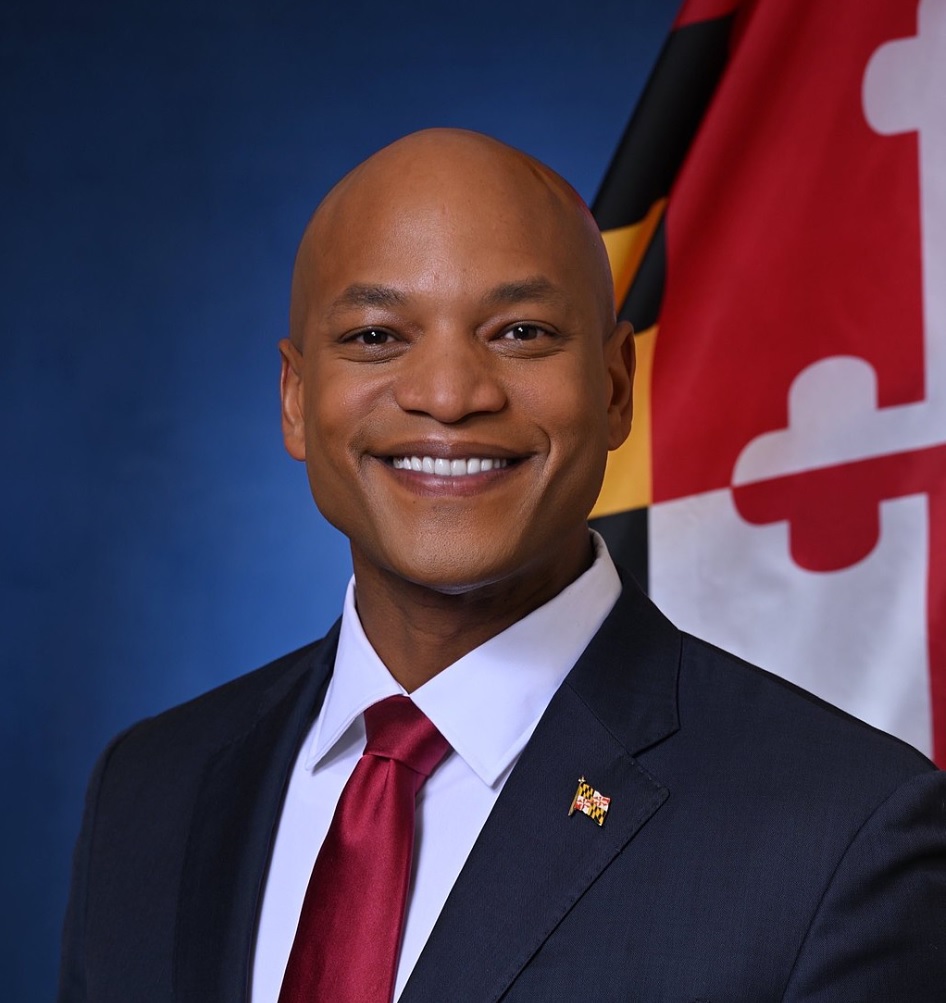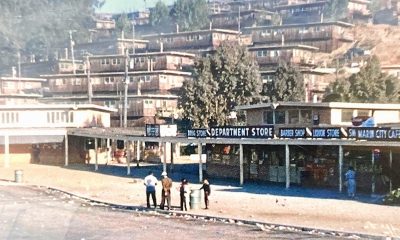Black History
Westley (“Wess”) Watende Omari Moore: Maryland’s First
Wess Moore (born 1978) has taken his own place in the history of American politics. He is Maryland’s first Black governor in its 246-year history and the third Black person elected governor of a U.S. state since Reconstruction.

Wess Moore (born 1978) has taken his own place in the history of American politics. He is Maryland’s first Black governor in its 246-year history and the third Black person elected governor of a U.S. state since Reconstruction.
“It’s humbling because this is the state of Harriet Tubman, Frederick Douglass and Thurgood Marshall,” Moore, a Takoma Park, Maryland native, told USA Today. “It shows that progress requires work, but it is possible as long as we’re willing to grow together.”
Moore described Election night in 2022 as “a celebration,” although he was “soaking in the moment,” thinking of his maternal grandmother, Winell Thomas, who died five days before the election.
Thomas helped raise Moore after his father, a broadcast journalist bearing the same name, died. About his grandmother’s faith in his future, Moore said: “If you had asked her when I was young if there was a chance this could have happened, she would have said yes.”
But earlier on, Moore would have disagreed. After his father’s death, Moore’s family relocated to the Bronx to live with his grandparents. Life without his father was difficult; he felt as if he didn’t fit anywhere.
Thomas enrolled Moore in an elite prep school at age 6. But coming home to the Bronx after being with wealthy classmates made him feel out of place. He’d become angry. Later, about age 11, he became truant and was placed in a squad car and arrested for tagging walls with graffiti. Moore told the MinnPost that his mother, Joy Moore, then “begged her parents to take out a loan against their house so she could send [me] to a military boarding school.”
By age 13, Moore was enrolled in Valley Forge Military Academy and College. The experience pushed him to put his life back on track. He worked as an intern for then-Baltimore Mayor Kurt Schmoke and later graduated from Johns Hopkins University. Moore earned a Rhodes Scholarship, which led him to earn his master’s in international relations from Wolfson College at Oxford.
In 2005, Moore deployed to Afghanistan as a captain with the 82nd Airborne Division, tasked to lead soldiers in combat. On returning, he served as a White House Fellow.
“My mother and grandmother believed in me and sacrificed for me,” Moore told USA Today about the encouragement he received from family. “That election moment was a testament to that sacrifice.”
There’s an imposter syndrome with children of color, Moore says, where “you’re waiting for someone to tap you on the shoulder and say, ‘Hey, how’d you get in here?’”
Moore wants every child of color to know that “they are never in a room because of someone’s benevolence, kindness or social experiment. They’re in that room because they belong there.”
An intimate narrative about finding meaning in a volatile age, Wess Moore’s “The Work: Searching for a Life that Matters” will inspire readers to see how we can each find our own path to purpose and help create a better world.
Activism
Oakland Post: Week of April 24 – 30, 2024
The printed Weekly Edition of the Oakland Post: Week of April 24 – 30, 2024

To enlarge your view of this issue, use the slider, magnifying glass icon or full page icon in the lower right corner of the browser window. ![]()
Activism
Oakland Post: Week of April 17 – 23, 2024
The printed Weekly Edition of the Oakland Post: Week of April 17 – 23, 2024

To enlarge your view of this issue, use the slider, magnifying glass icon or full page icon in the lower right corner of the browser window. ![]()
Black History
Matthew Henson: Explorer Extraordinaire
Matthew Henson, a trailblazing explorer who overcame countless obstacles to leave an incredible mark on history. Born on August 8, 1866, in Charles County, Maryland, his journey is a testament to the power of determination and the spirit of adventure.

By Tamara Shiloh
Matthew Henson, a trailblazing explorer who overcame countless obstacles to leave an incredible mark on history. Born on August 8, 1866, in Charles County, Maryland, his journey is a testament to the power of determination and the spirit of adventure.
Henson’s life began amidst the backdrop of post-Civil War America, where opportunities for African Americans were scarce. From a young age, he possessed an insatiable curiosity about the world beyond his small town. At the age of 12, he embarked on a journey that would change the course of his life forever when he joined a merchant ship as a cabin boy.
His most famous expedition was his journey to the Arctic with renowned explorer Robert E. Peary. In 1887, Henson joined Peary’s crew as a seaman and quickly proved himself to be invaluable with his skills as a navigator and craftsman. Over the course of several expeditions, Matthew endured extreme cold, treacherous terrain, and grueling conditions as he and Peary sought to reach the elusive North Pole.
In 1908–09, Peary set out on his eighth attempt to reach the North Pole. It was a big expedition, with Peary planning to leave supplies along the way. When he and Henson boarded their ship, the Roosevelt, leaving Greenland on August 18, 1909, they were joined by a large group. This included 22 Inuit men, 17 Inuit women, 10 children, 246 dogs, 70 tons of whale meat, blubber from 50 walruses, hunting gear, and tons of coal.
In February, Henson and Peary left their anchored ship at Ellesmere Island’s Cape Sheridan, along with the Inuit men and 130 dogs. They worked together to set up a trail and supplies along the way to the Pole.
Peary picked Henson and four Inuit people to join him in the final push to the Pole. However, before they reached their destination, Peary couldn’t walk anymore and had to ride in a dog sled. He sent Henson ahead to scout the way. In a later interview with a newspaper, Henson recalled being in the lead and realizing they had gone too far. The group turned back, and Henson noticed his footprints helped guide them to their destination. At that location, Henson planted the American flag.
Henson’s legacy extends far beyond his expeditions to the Arctic. He shattered racial barriers in the world of exploration and inspired countless individuals, regardless of race, to dream big and pursue their passions. In 1937, he was finally recognized for his achievements when he was inducted into The Explorers Club, an organization dedicated to promoting scientific exploration and field research.
Matthew Henson died in the Bronx, New York, on March 9, 1955, at the age of 88.
-

 Activism4 weeks ago
Activism4 weeks agoOakland Post: Week of March 27 – April 2, 2024
-

 #NNPA BlackPress4 weeks ago
#NNPA BlackPress4 weeks agoBeloved Actor and Activist Louis Cameron Gossett Jr. Dies at 87
-

 Community1 week ago
Community1 week agoFinancial Assistance Bill for Descendants of Enslaved Persons to Help Them Purchase, Own, or Maintain a Home
-

 Activism3 weeks ago
Activism3 weeks agoOakland Post: Week of April 3 – 6, 2024
-

 Business2 weeks ago
Business2 weeks agoV.P. Kamala Harris: Americans With Criminal Records Will Soon Be Eligible for SBA Loans
-

 Activism2 weeks ago
Activism2 weeks agoOakland Post: Week of April 10 – 16, 2024
-

 Community2 weeks ago
Community2 weeks agoAG Bonta Says Oakland School Leaders Should Comply with State Laws to Avoid ‘Disparate Harm’ When Closing or Merging Schools
-

 Community7 days ago
Community7 days agoOakland WNBA Player to be Inducted Into Hall of Fame

























































